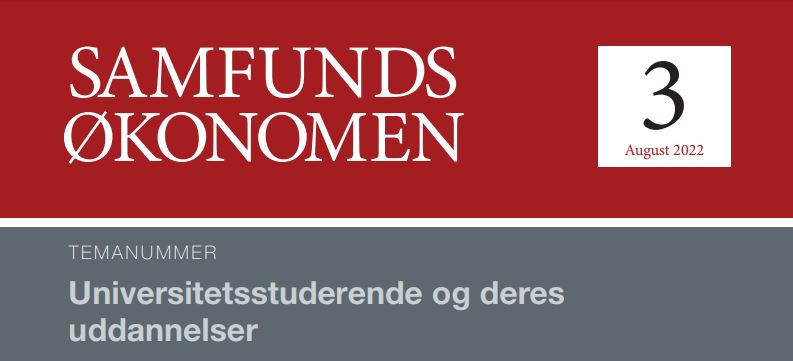Studying and Working: Your Student Job Affects Your Future Labor Market Outcomes
DOI:
https://doi.org/10.7146/samfundsokonomen.v2022i3.133978Nøgleord:
studying, student job, student work experienceResumé
Does student employment pay off in the labor market after college? Does the type of student job matter? We use administrative data to describe the amount and type of student work for twenty cohorts of students in higher education in Denmark. We find large differences in the amount, and especially the type of student jobs, by education level and field of study. We show that both the skill content and the study-relevance of the student job matter for earnings after college. Having an additional year of student work experience in a job requiring a high skill level or a study-relevant job is associated with an earnings premium of around 20-25% one year after exit from higher education. This premium fades out during the first years and stabilizes around 5% after 6-14 years for professional degrees, but remains relatively high and stable over time since exit from higher education for more theoretically
oriented university degrees and for dropouts. This suggests a strong and persistent complementarity between the skills students learn in theoretical university courses and high-skill student jobs.
Downloads
Publiceret
Citation/Eksport
Nummer
Sektion
Licens
*Tidsskriftet Samfundsøkonomen er et open access tidsskrift, og alle artikler udgivet af Samfundsøkonomen er licenseret under en Creative Commons Navngivelse-IkkeKommerciel-IngenBearbejdelse 4.0 International Licens, CC BY-NC-ND.

